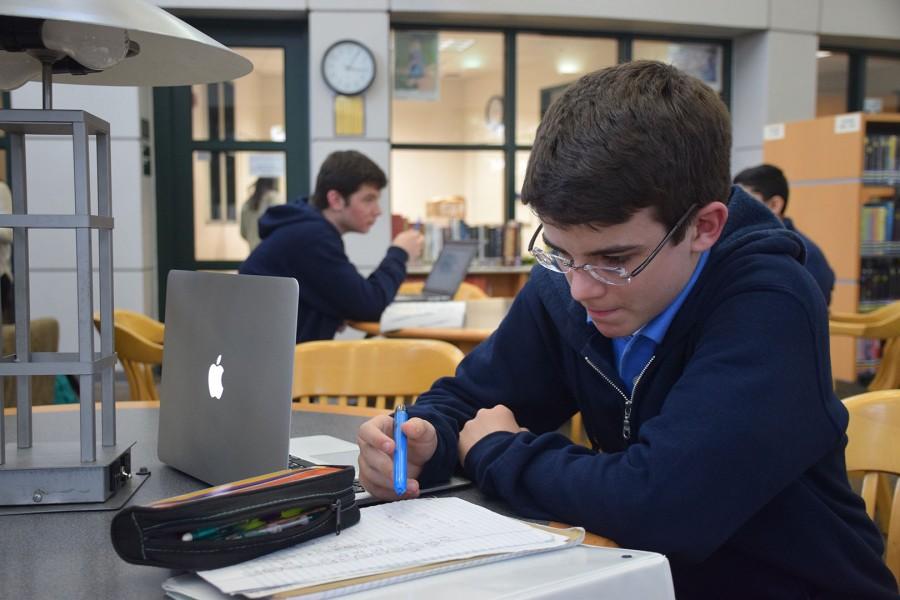I think it’s safe to say none of us are foreign to the helicopter parent. You know: the constant canvas checker, the FBI investigator, the mom that still packs her children’s lunches despite the fact that they graduate in five months.
While our parents only mean to raise us to be the best we can be, we have to take a step back and consider the notion that having someone to hold our hand along the way might play might play a role in inhibiting our transition into adulthood.
University of California, Merced professor Laura Hamilton found that the kids of helicopter parents are more likely to find well-paying jobs and graduate college. However, this advantage comes with a massive price.
Terri LeMoyne and Tom Buchanan at the University of Tennessee found that these same students were the ones who struggled the most with mental illness and were more likely to be medicated for depression, anxiety or both.
Similarly, a Trinity survey found that parental pressure was said to be the leading factor in 37.5 percent of student’s fear of failure. With Canvases up-to-date feature, parents are now able to monitor students grade’s more frequently than ever, setting an unrealistic academic standard that must be achieved at all times.
Chemistry teacher Carrie Lopez has selectively released Canvas grades based on student’s requests.
“I had a student ask me to wait to release the test grades until after their sporting event over the weekend in an attempt to assure that their parents would allow them to participate,” Lopez said.
Outside of the world of technology, parents also default to overprotective behaviors. This generation of parents have stopped allowing their kids venture out into the world on their own much more frequently than their parents did.
We’ve all heard an adult reminisce about the good ‘ole days when children could run free until dark without parent’s permission. Many counter this with the often used phrase “times have changed.”
However, our parent’s common comeback is incorrect. Although times have changed, it seems it has been for the better. According to the FBI Uniform Crime Reports, all violent crime has declined 48 percent since 1993, the homicide rate has nosedived 50 percent and physical assault in children ages two to seventeen has plummeted 33 percent.
Maybe you’ve already started typing these statistics into a slide show to convince your parents to let you go out this weekend, and although it’s easy to scapegoat and blame our parents, we also play a large role.
Although independence means getting to turn your location off, it also means you have to make your own breakfast and monitor your grades all by yourself.
Addressing this affair starts with a conversation with your parents, and a conversation means compromise. If your parents are going to loosen their rein on you, they need to know you’re going to be able to have a tighter rein on yourself.
I propose you sit down with your parents and tell them you love them, but that things need to change. Tell them if they are willing to restrain themselves from getting angry that you didn’t respond to their thirty good luck texts before a forensics tournament, you will use the time to prepare for the next round. Tell them if they stop tracking you on “Find my iPhone,” you will use the buddy system. Propose that maybe instead of spending every waking moment refreshing the grade page on Canvas, they check it once a week, or in serious cases, once a day.
There is no “perfect parenting” method but rather a spectrum in which each family unit must decide the needed amount of “hover.” For instance, certain kids need a more aid than others, depending on age group and learning ability. Parents can be incredibly useful to the prosperity if students if done in moderation.
One solution for guiding parents in this journey is the “partner with parent” method that Director of Curriculum Patrick Mulloy hopes we can implement to our school.
“At great independent schools, parents are essential partners in education.” Mulloy said. “They can help us provide great structure and encouragement for our Saints as they grow from sixth graders until they walk across the graduation stage. I think that as a school we can inform parents so that they support all that our faculty, coaches and staff do each day for their children.”
This style of curriculum would enable parents and teachers to meet more often and collaborate their knowledge of parenting, from SAT tutors to academics tactics for athletes.
Although this would promote moms and dads to be more involved, there is a way for both theories of parenting to harmonize. Letting students figure out life on their own terms is different than leaving them in the dark.
Being there for your kid when they are convinced their lives are falling apart because they have four AP exams and a basketball game isn’t over involved. Punishing them when they fail those AP exams isn’t over involved. Parents should still parent, but maybe it’s time we let kids still be just that: kids.
We understand how difficult it is to oversee every aspect of our lives, but sometimes we need supporters instead of managers, or, in most cases, “momagers.”
Parenting is a job I haven’t yet had to face, but your doing great, Mom-who found-this-newspaper-when-you-were-looking-through-your-child’s-backpack-for-that-quiz-you-knew-you-didn’t-prepare-him-well-enough-for. It can be tempting at times to rescue us from our sinking boats, but sometimes we need to drown a little in order to learn how to swim.










